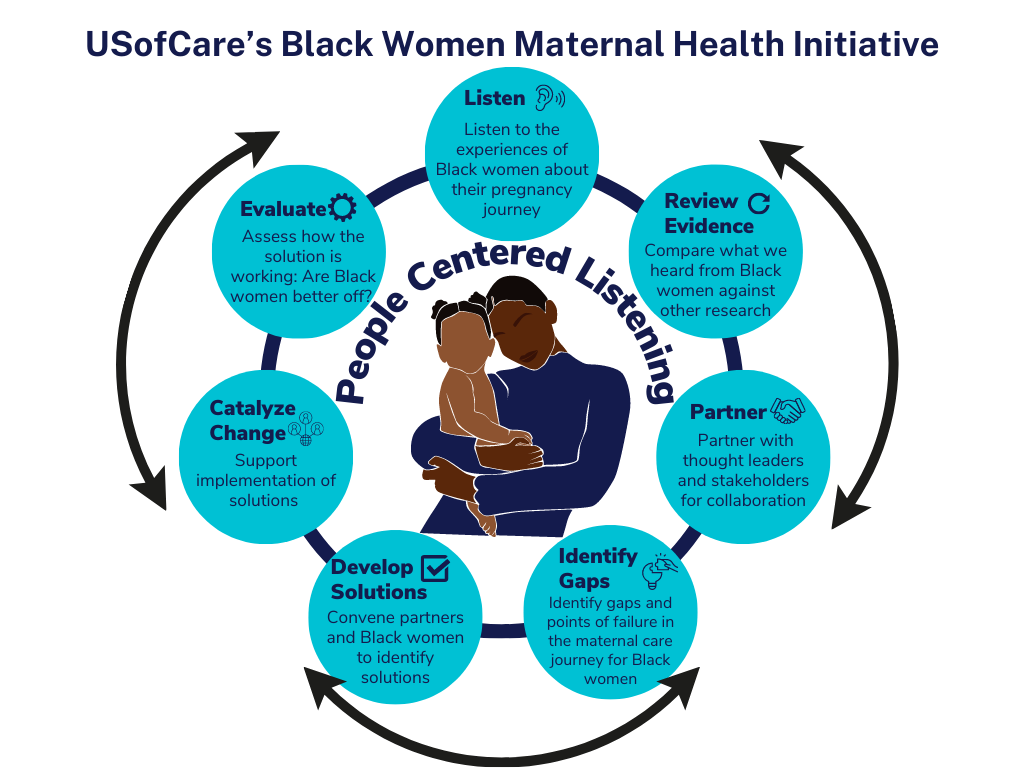
USofCare Maternal and Child Health Care
Everyone deserves to have a joyful and safe pregnancy while being treated with dignity and respect, but we know that in the United States that is oftentimes not the case.
At United States of Care, we start our work by listening to people first. Using this people-first approach, we arrived at our United Solutions for Care, which includes four goals and 12 solutions to improve the health care system based on what we heard over multiple years from people across the country. Included in those 12 solutions is a call for better maternal and newborn care.
Our health care system has failed maternal health severely and the racial disparities are especially stark: recent data shows that the mortality rate among Black women has skyrocketed to almost three times that of white women, regardless of their income or education.
Each year, hundreds of Black women die from complications from childbirth within one year after giving birth. With a bipartisan majority of Americans supporting improvements in maternal and newborn care and a robust advocacy network highlighting this inequity’s impact on our communities, the question remains: why has our health care system failed Black women so severely?
We seek to answer just that. As we search for solutions to the maternal health crisis, we must center the voices of people affected most, including Black women.
Maternal & Child Health Care Resource Hub
USofCare is proud to share resources based on our listening work and research that uncover how we can ensure everyone has a joyous birthing experience and a joyful, safe, and supported pregnancy.
How We Do Our Work

USofCare is doing change differently. We are taking an approach that centers people using people-centered solution design. By this approach, we can ensure we are creating a more equitable health care system, especially for Black women who are facing some of the highest rates of maternal morbidity and mortality in this country.
Our unique people-centered solution design approach brings together voices from across and outside health care–including people with lived experience–to identify solutions to the inequities people face in health care. Our approach is an iterative and collaborative process. We listen to everyday people and contextualize our listening data with findings from the empirical literature and expert input to identify gaps in our health care system. Using what we have learned through our listening work and research, we convene Solution Tables to identify innovative solutions with partners who can bring these solutions to life and catalyze change.